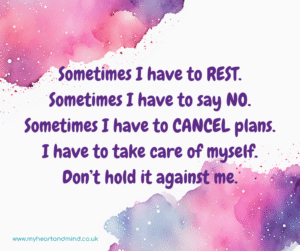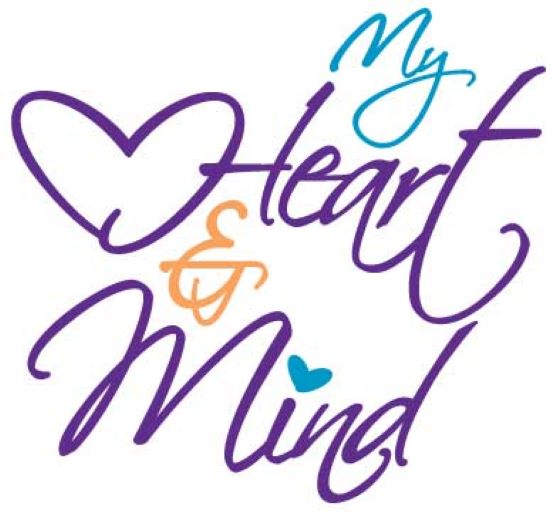Self-care can often be confused with selfishness, this is so not the truth.
Consider self care after a cardiac event in the same way you would when you are instructed to put the oxygen mask on yourself first before helping others when on a plane.
Listen here and read on for more….
It can be described as any activity that you do in order to take care of your social, emotional, physical, mental, financial, spiritual and environmental health and wellbeing. It’s a simple concept but it is often something that is harder to actually do and often overlooked. Yet it is key to improving mood and reducing anxiety, especciall after a cardiac event. It’s also significant in forming a good relationship with yourself and others.
Do you show yourself the love?
 When I was in my 20’s I spent my many years worrying about the way I look and who I was. As I reflect now I think to myself why I wasted soooo much time worrying about the things I can’t change – such as my broad shoulders or the shape of my nose. I really should have just accepted my body as ‘it is what it is’ and focussed on all the positives.
When I was in my 20’s I spent my many years worrying about the way I look and who I was. As I reflect now I think to myself why I wasted soooo much time worrying about the things I can’t change – such as my broad shoulders or the shape of my nose. I really should have just accepted my body as ‘it is what it is’ and focussed on all the positives.
When it came to things that I could change – like my weight, fitness and muscle tone I would obsess. I’d try the latest and greatest fad that was being talked about by friends and family or in magazines. I have tried many diets such as the grape diet and cabbage soup diet both unsustainable. I tried swimming, aerobics and step classes but they just didn’t inspire or motivate me. Why did they work for others but not for me?
Your self-care and your mindset
I never really stuck with the programme, sometimes I would get great results but it was always short lived and I still wasn’t happy. That was until I made the choice to love the skin I was in and make lasting change to my thoughts. These are some the changes to my mindset that I made.
- I chose to believe that I am perfect in my imperfection. I am unique, one of a kind. Just like your fingers prints, there is no one else that shares the same pattern. Not even identical twins. My affirmation was and still is “I like myself, I like myself, I really really love myself”.
- I decided that I was going to find an activity that I loved. I made a list of anything and everything I could think of that was interesting. I made a list of all the things that I wanted to get out of the exercise so I could benchmark the experience. I then went along with the attitude of just trying it out – no pressure to continue. In my case it was Shotokan Karate, I was so motivated and enjoyed everything about it, including learning Japanese words. This lasted for over 10 years.
- I came to the conclusion that I was not going to ‘diet’. I was going to make healthy food and drink choices. In my mind a diet was something that started and stopped, that was obviously not going to work it needed to a lifelong change. I realised that I needed to think differently about how, when, what and where I ate. The why was important too, I was going to look out for any triggers that might cause me to eat when I wasn’t hungry. The definition I was going to remind myself of was “the kinds of food that a person, animal, or community habitually eats”.
- As part of my self-care, wanting to live life and have fun I thought it would be a good idea to allow myself to live by the motto everything in moderation, including moderation.
An alternative exercise for self-care after a cardiac event
While a bubble bath or essential oils can be great for some people, self-care doesn’t have to be limited to these popular activities. It’s about finding what truly nourishes you. Here’s a simple, yet powerful exercise you can try that focuses on connecting with your mind and body.
The Body Scan Meditation
This exercise helps you check in with yourself and release tension you might not even realise you’re holding. You can do this lying down or sitting in a comfortable chair.
- Find a quiet, comfortable space where you won’t be interrupted. Close your eyes and take a few deep breaths, inhaling through your nose and exhaling through your mouth.
- Bring your attention to the top of your head. Notice any sensations—tingling, pressure, warmth. Just observe without judgment.
- Slowly, begin to move your awareness down your body. Scan your face, your neck, your shoulders. If you feel any tension, imagine your breath softening and releasing it.
- Continue this slow scan down your arms, hands, chest, back, stomach, hips, legs, and feet. Pay attention to each part of your body.
- When you reach your feet, take a moment to feel the connection of your body to the surface you are on.
- Gently bring your awareness back to the room, open your eyes, and notice how you feel.
This practice only takes 5-10 minutes but can have a profound impact on your ability to be present and grounded.
Your challenge
It’s your mind, body, and soul. You are a natural and amazing wonder. It’s the only “you” you’re going to get for right now. Accept it, listen to it, learn from it, and love yourself for it. Take some time to think about this question: What aspect of self-care have you found difficult that you can improve simply by changing the way you think about it? I’d love to know what comes up for you, please share with me by sending an email to sallie@myheartandmind.co.uk.
My new journey
After my ruptured Achilles tendon, heart attack and breast cancer, the need to review these areas in my life came up again. Add these events to my previously broken leg and the medication I take that affects my energy and metabolism, it makes exercise and maintaining a healthy weight slightly more of a challenge. So watch this space for updates as I take up my own challenge.


